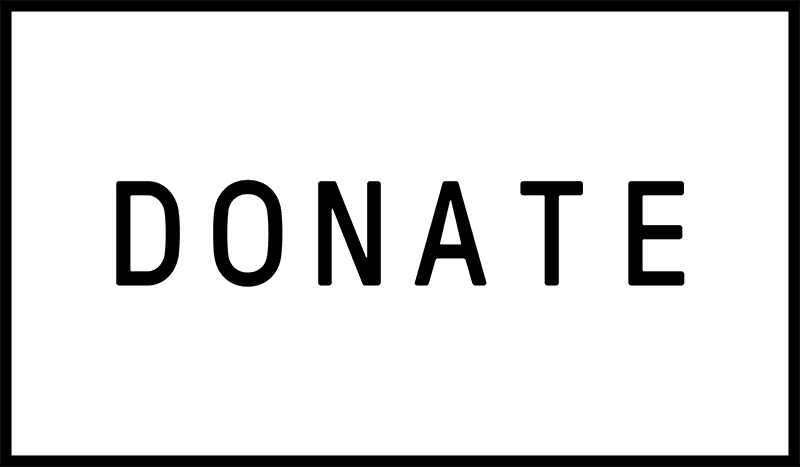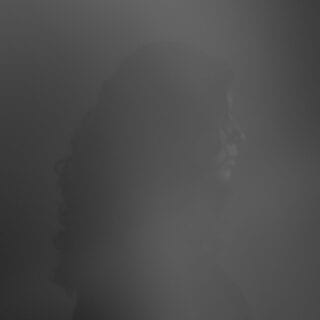Somewhere Else Than Here
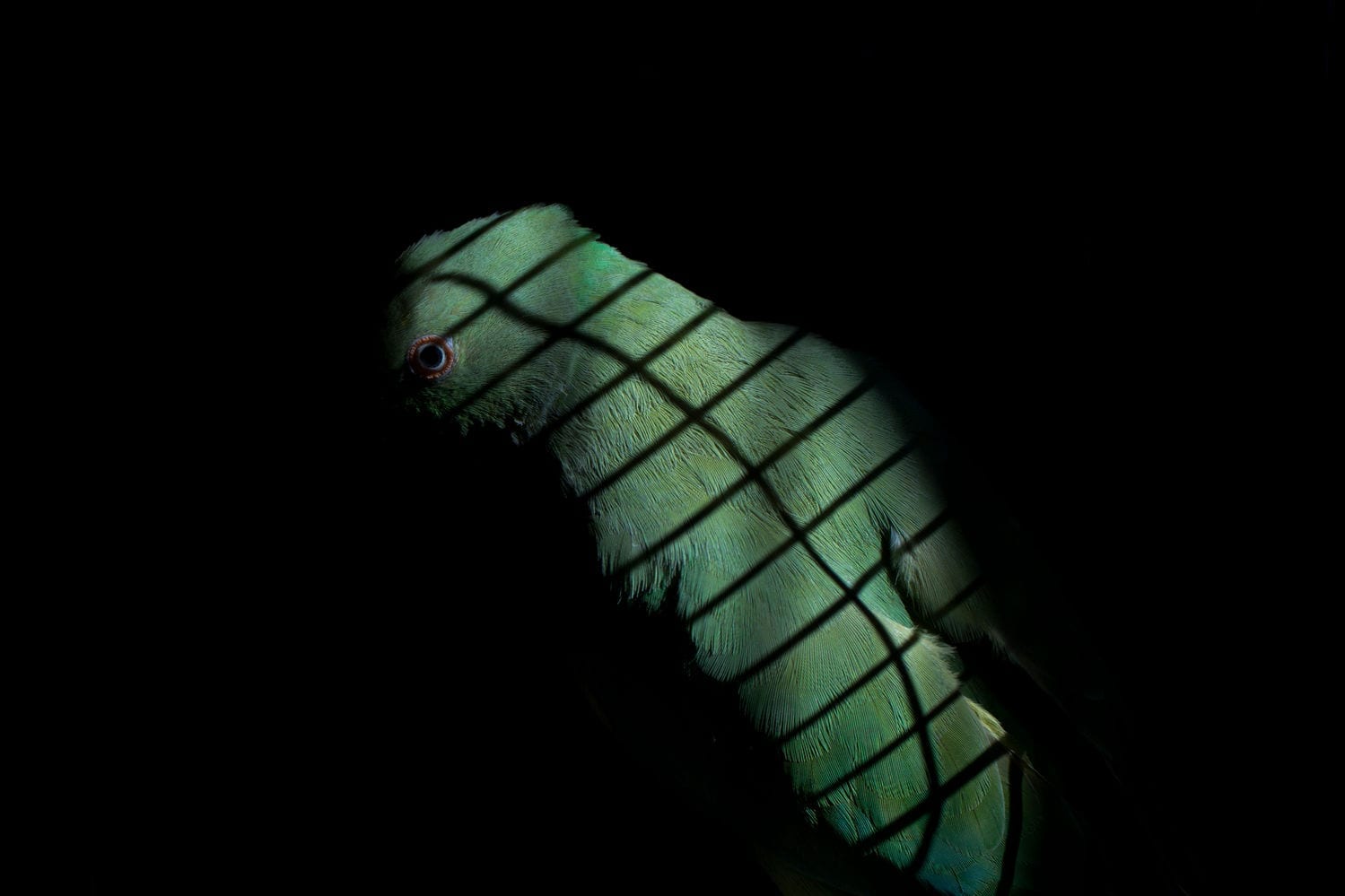
“Geboren in een vreemd universum waar gekooide vogels kunnen zingen maar niet vliegen, waar onze liefde onbemind is, maar toch moet sterven. Is alles onwaar of zijn wij dat? “
“Born into a strange universe where caged birds can sing but cannot fly, where our love is unloved, yet to die. Is everything untrue or are we? “
Sumi Anjuman
Religie en cultuur
De serie Somewhere Else Than Here is een aanklacht tegen de druk die traditionele culturele en conservatief-religieuze groepen in Bangladesh uitoefenen op LGBTQIA+ personen.
Dit werk verbeeldt het proces van transitie binnen een gemeenschap van individuen die hun liefde, hoop en fantasie onderzoeken — evenals angst, homofobe isolatie en hun strijd om gezien te worden voor wie ze werkelijk zijn: mensen.
Voor de kolonisatie kende de regio die nu Bangladesh heet, een meer fluïde en gelaagd begrip van gender. Gemeenschappen zoals de hijra’s — vaak erkend als een derde gender — bestonden openlijk en maakten deel uit van het culturele, spirituele en zelfs koninklijke leven. Wat tegenwoordig vaak wordt gezien als “traditionele” genderrollen en morele waarden, werd in veel opzichten gevormd door koloniale wetten en geïmporteerde opvattingen. Somewhere Else Than Here kijkt voorbij deze overgeërfde normen en put uit een diepere, prekoloniale geschiedenis van genderdiversiteit die al lang deel uitmaakt van het verhaal van dit land.
Voor jongeren is respect2love.nl de multiculturele jongerengemeenschap van het COC.
* Bron: COC – Religie & Cultuur
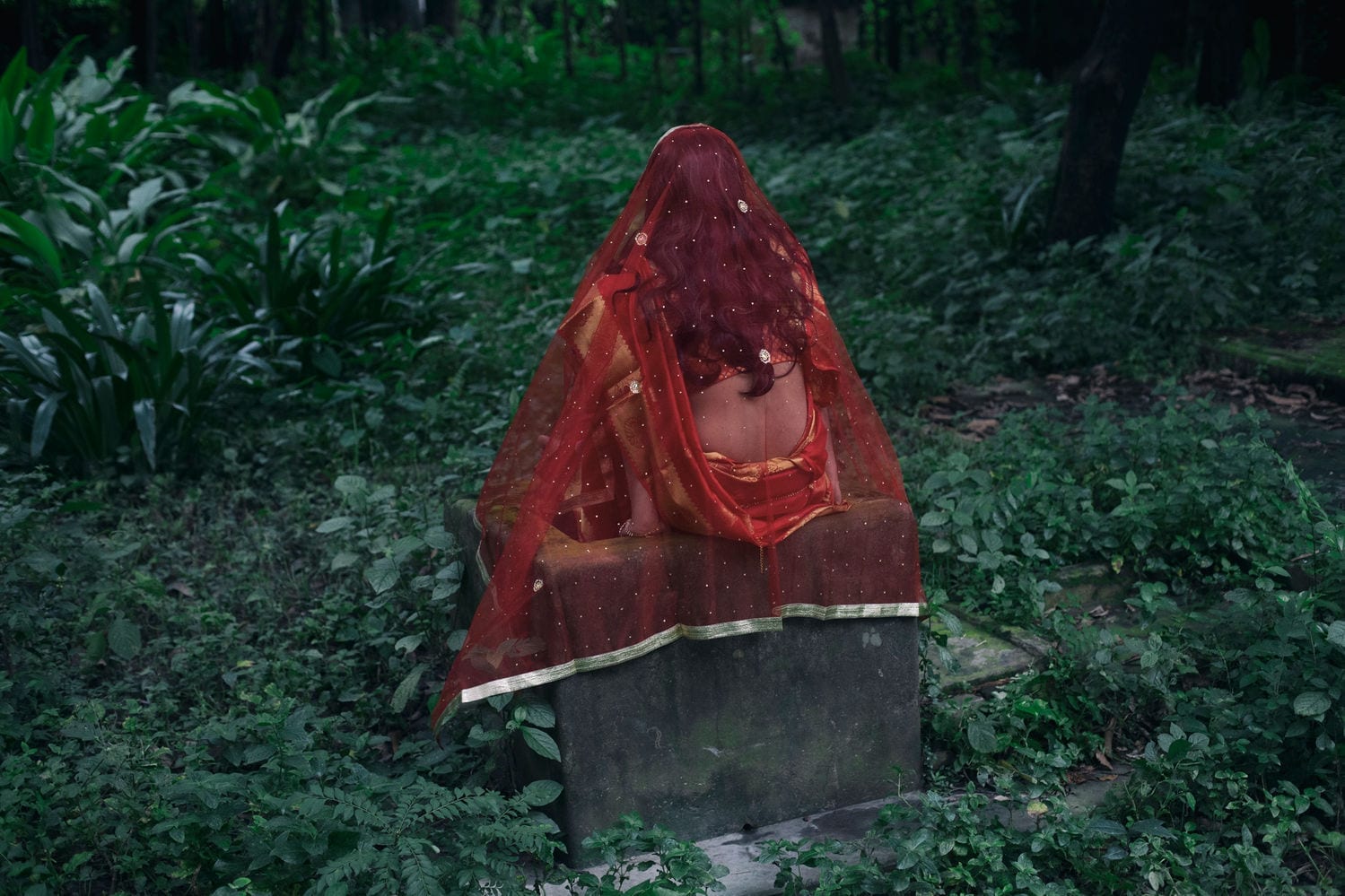
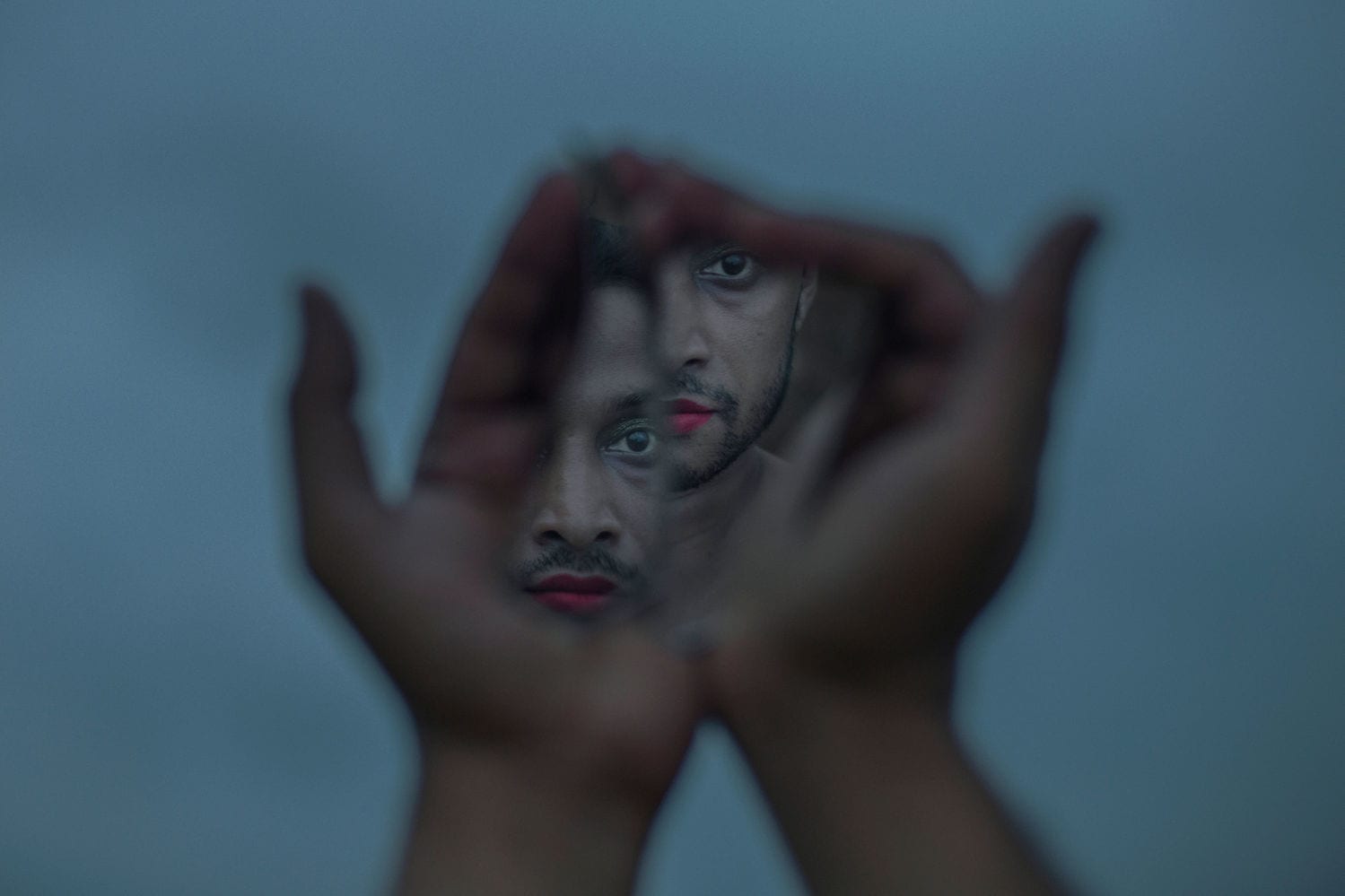
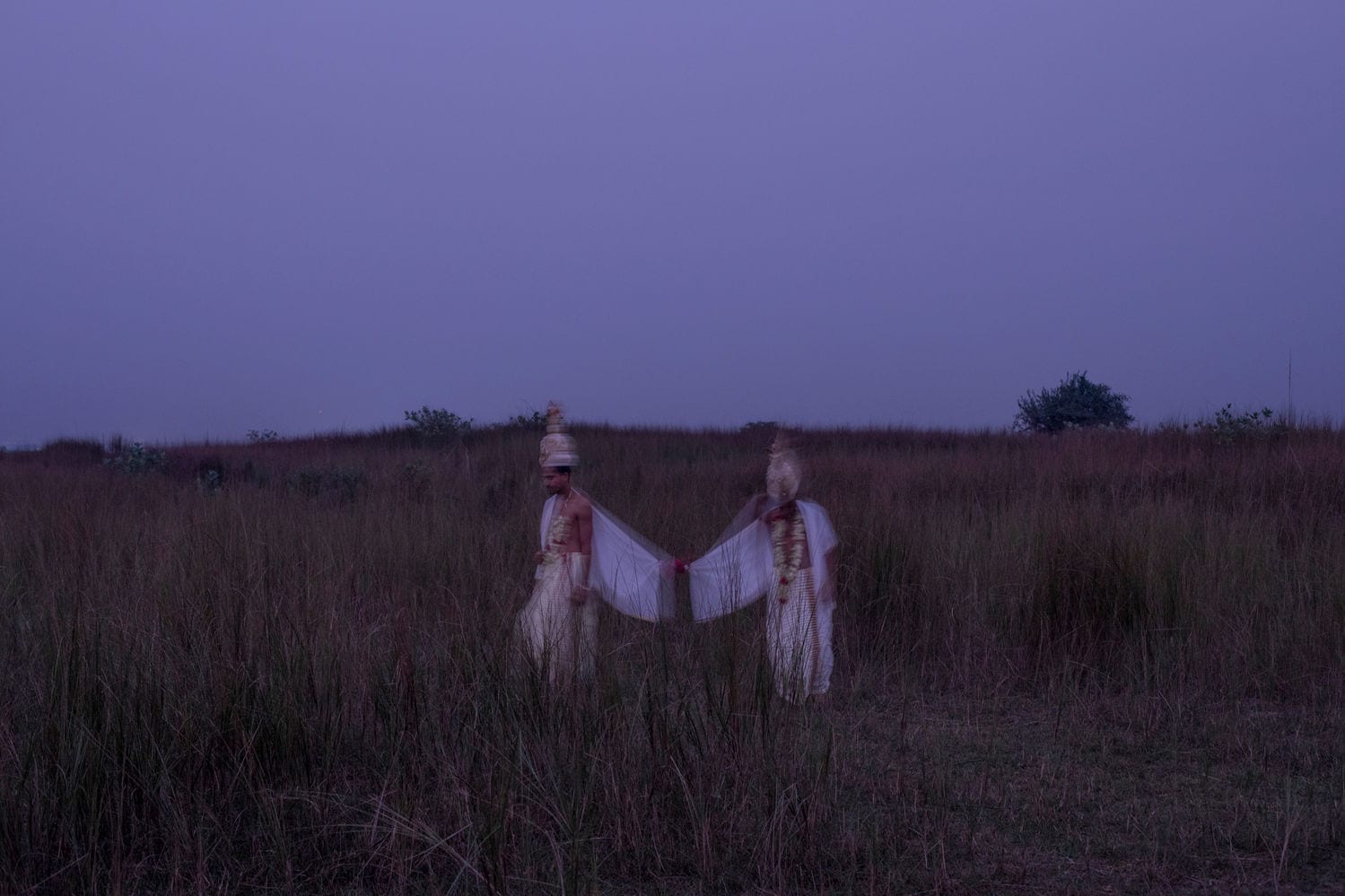
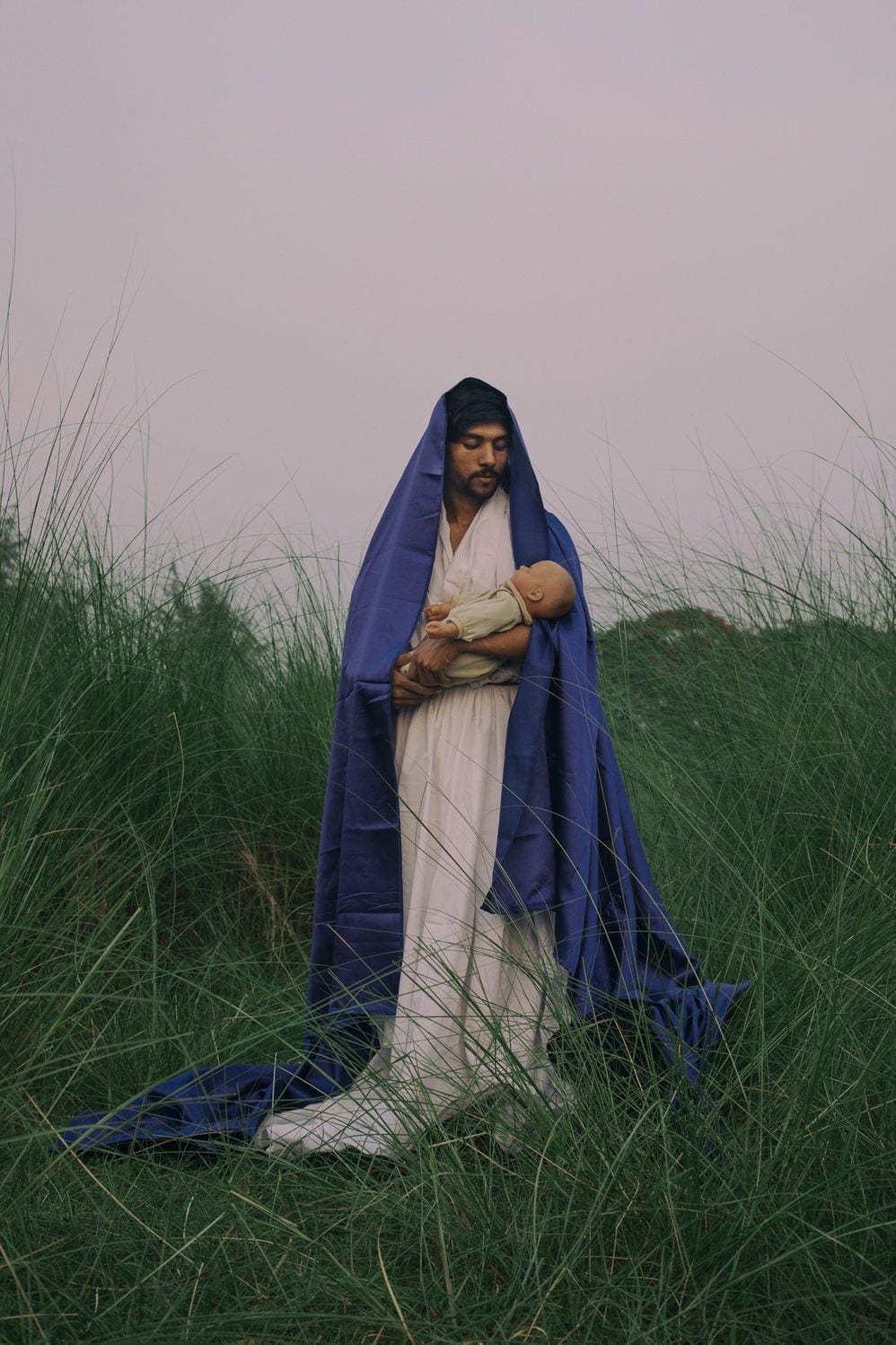
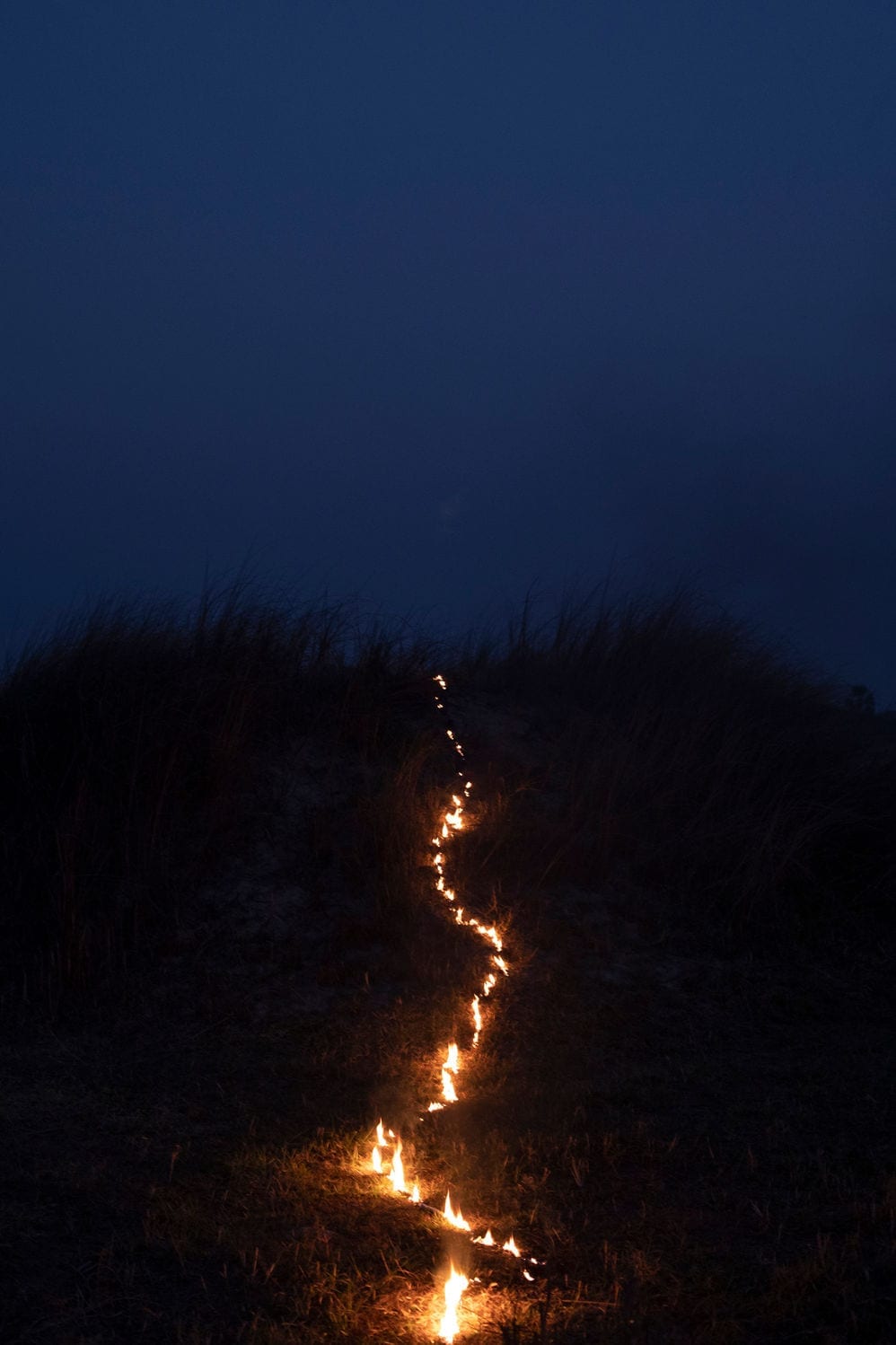
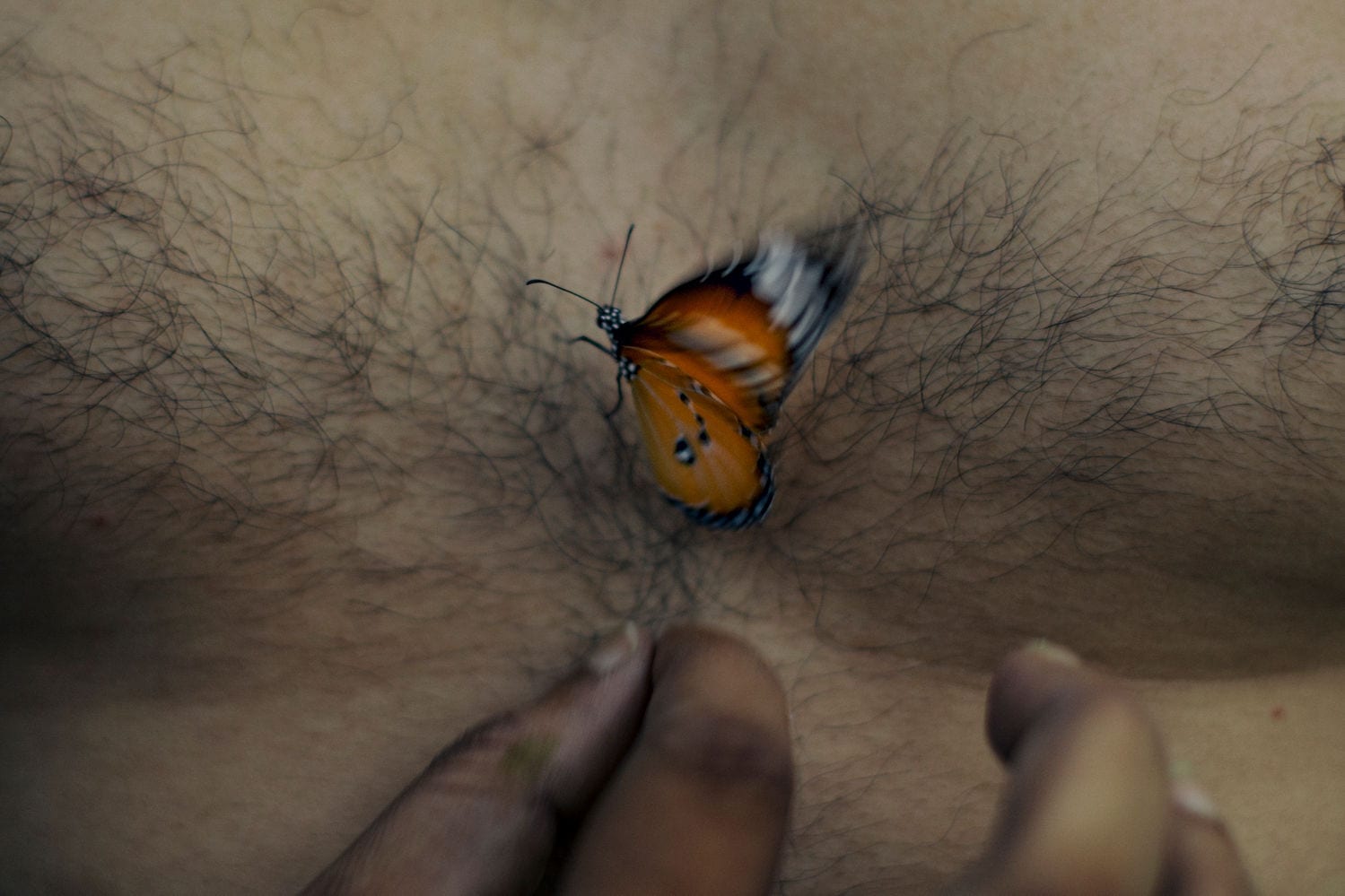
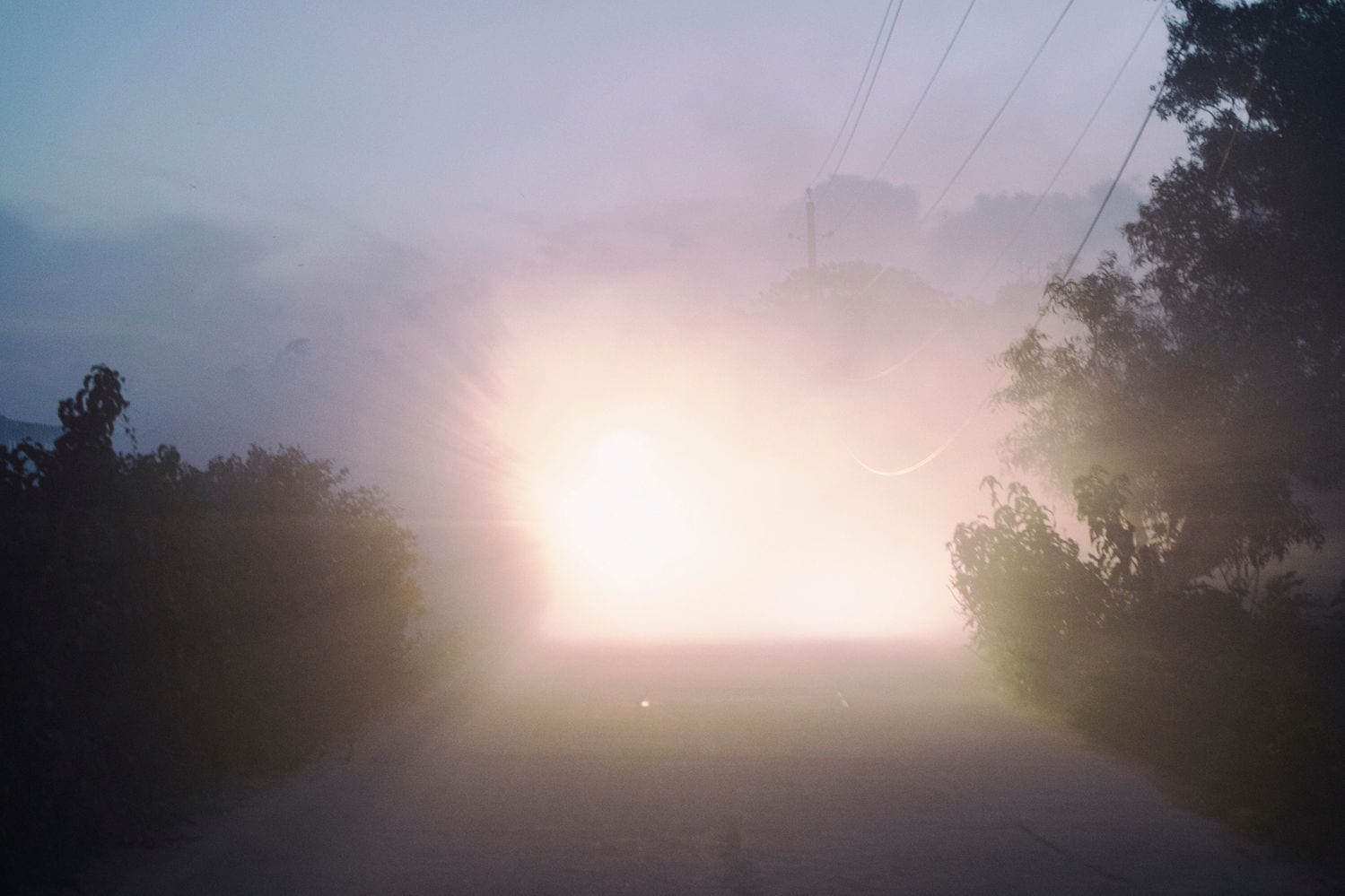
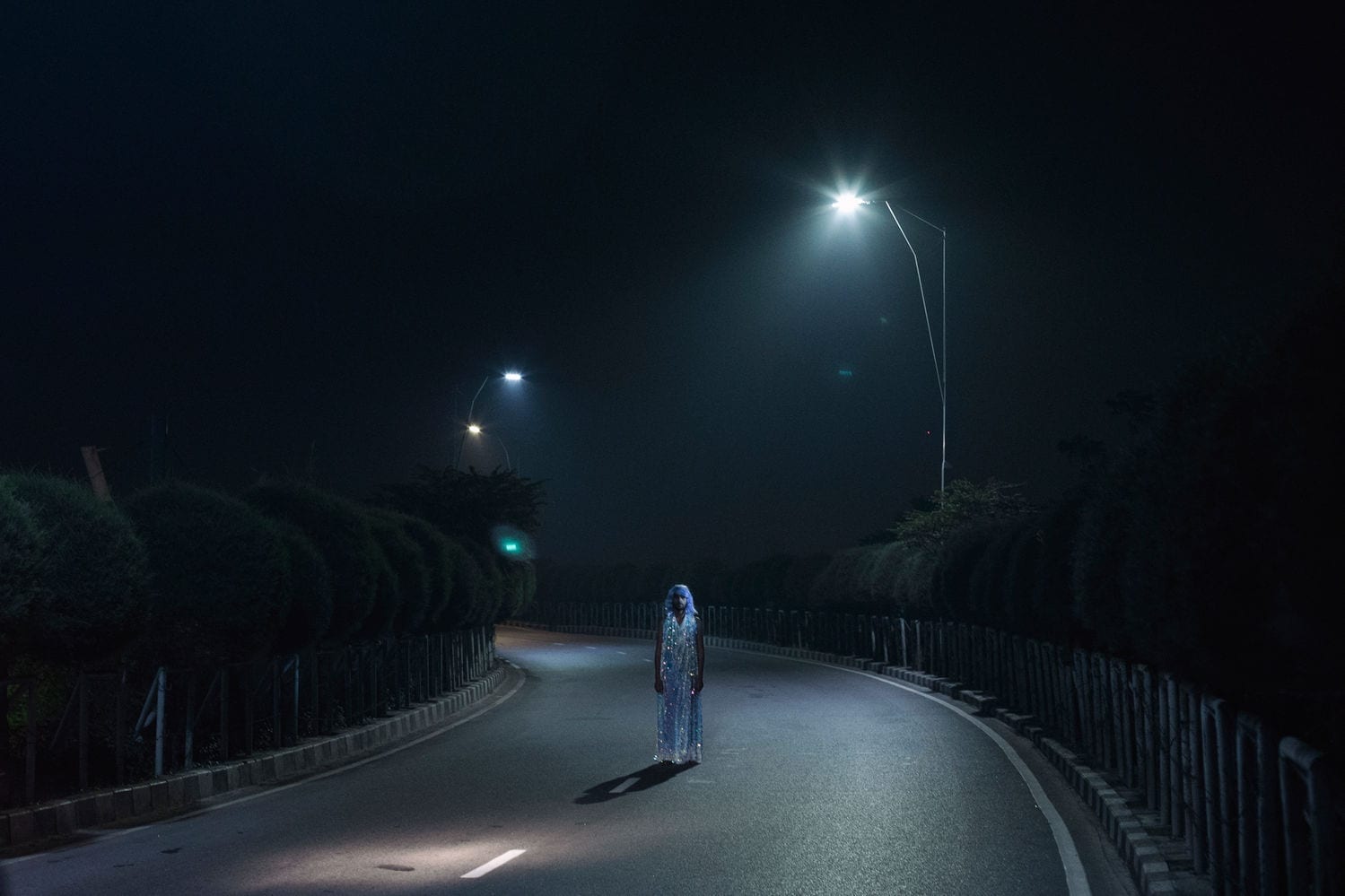
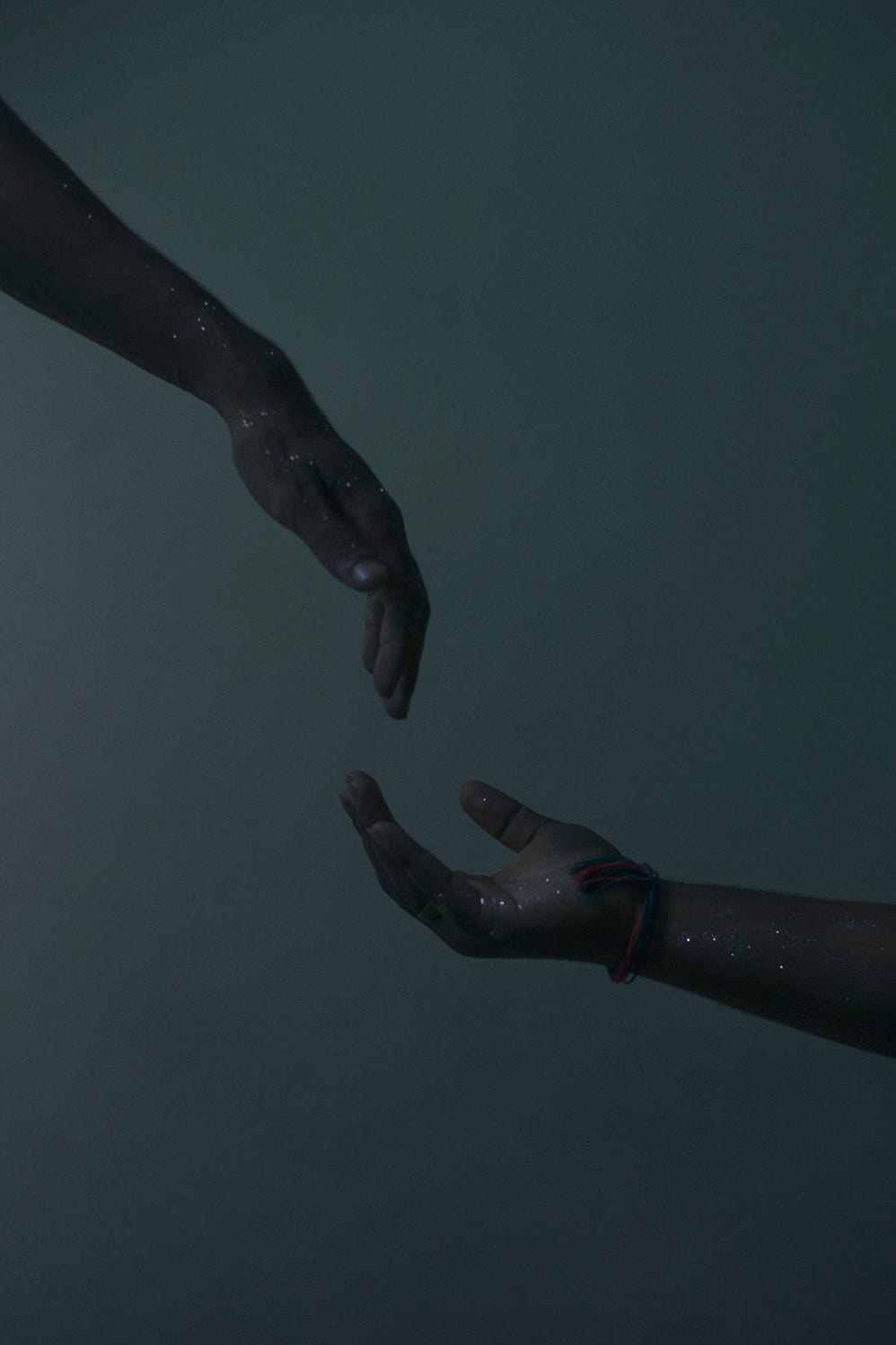
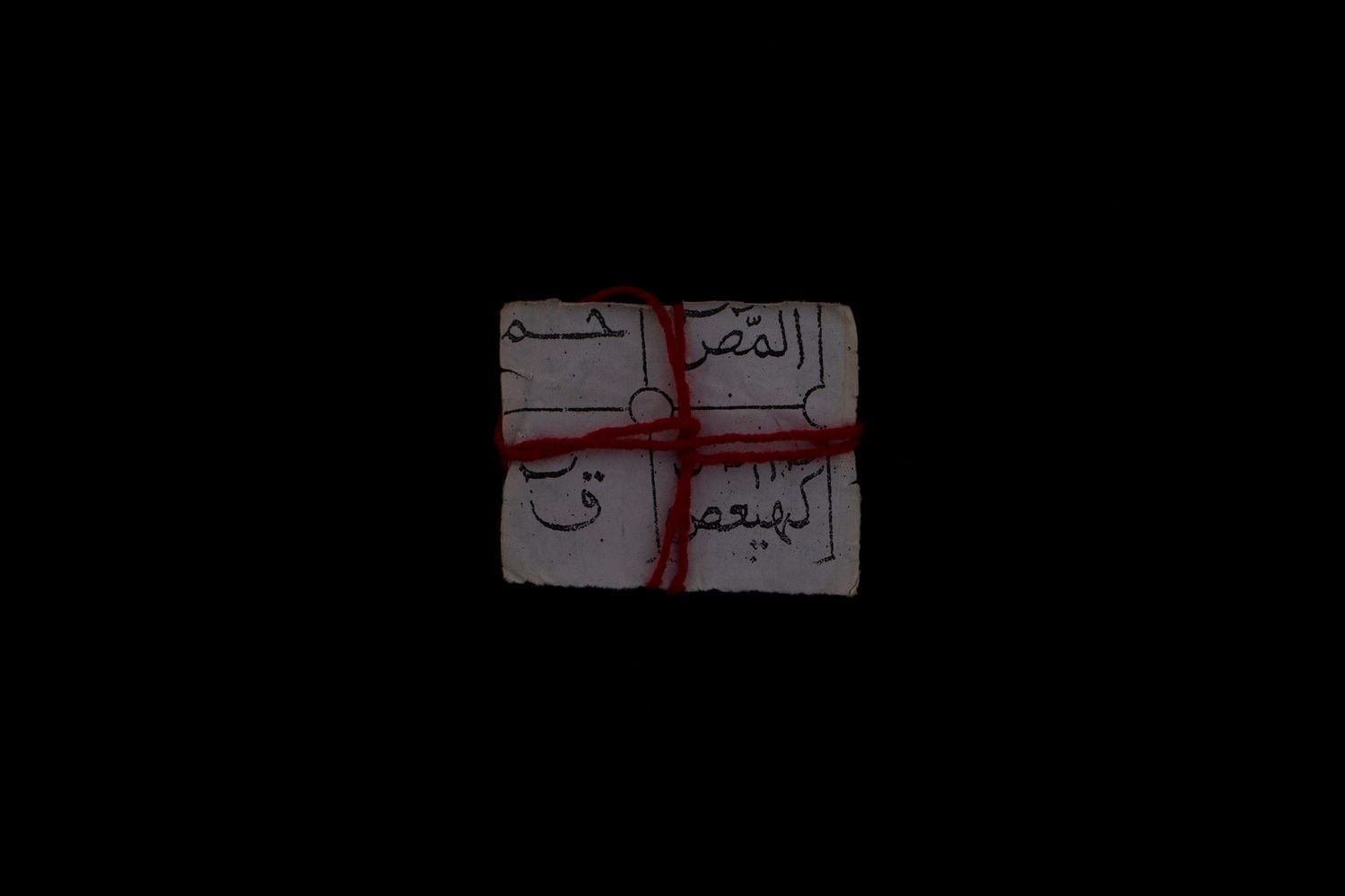
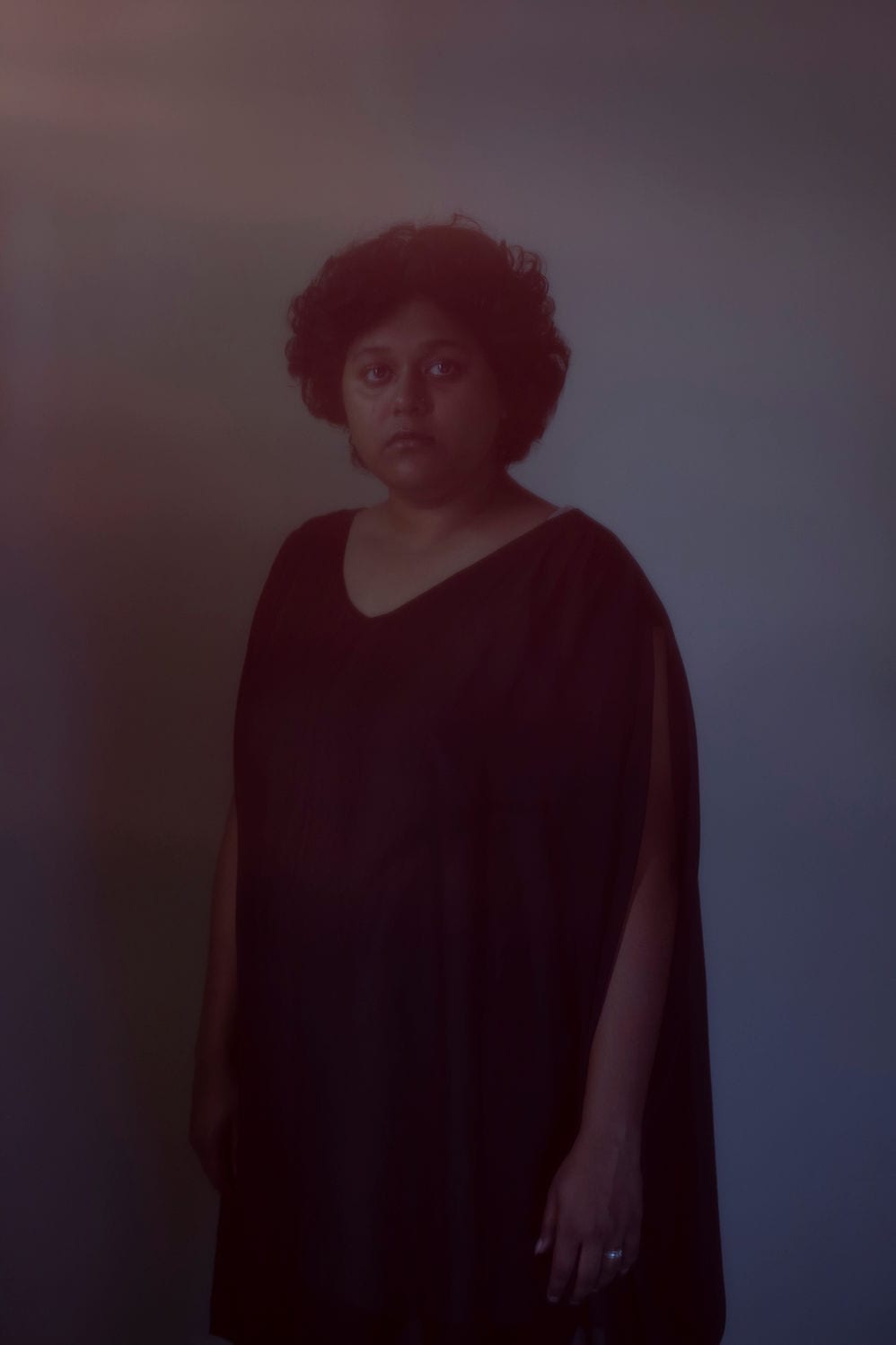
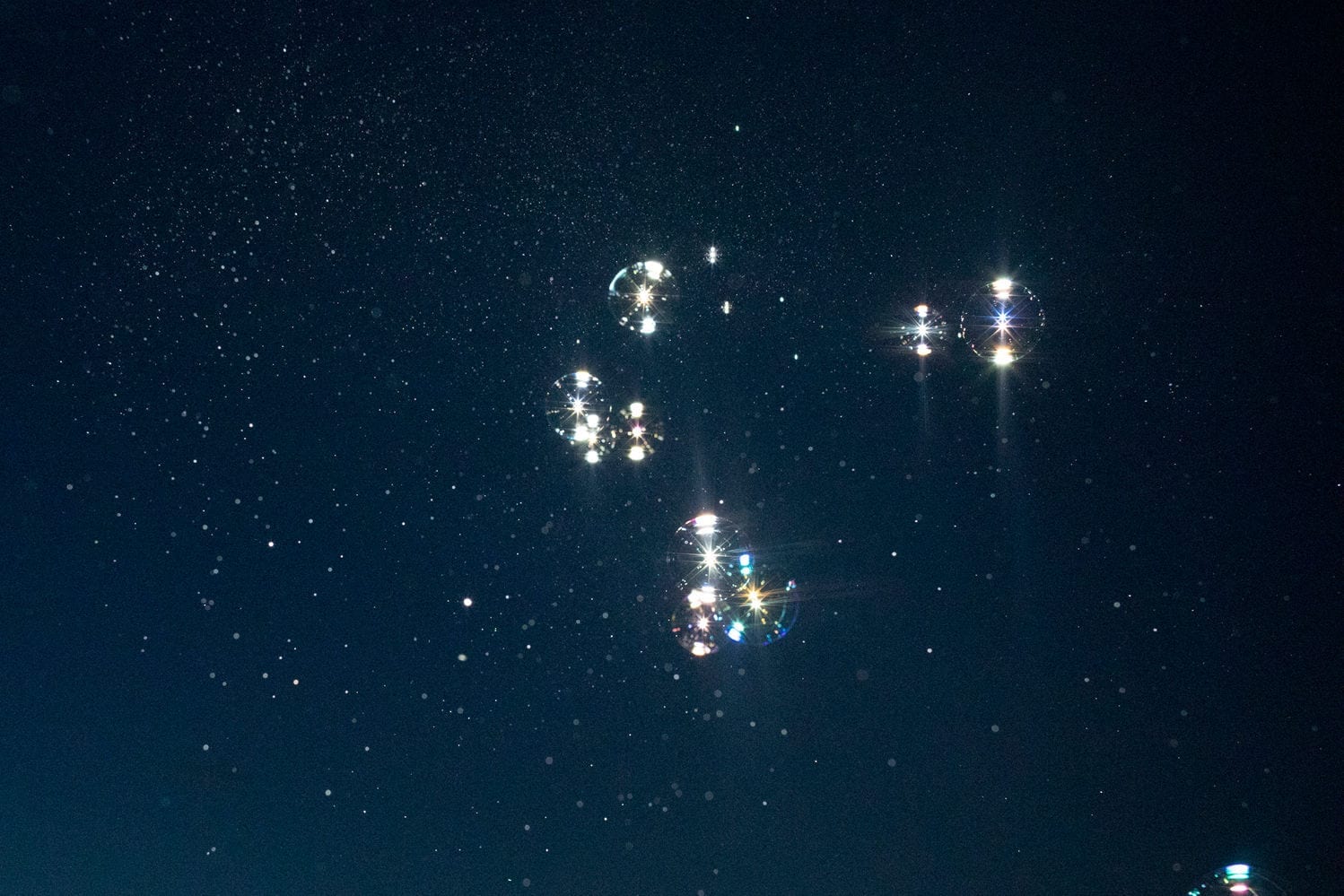
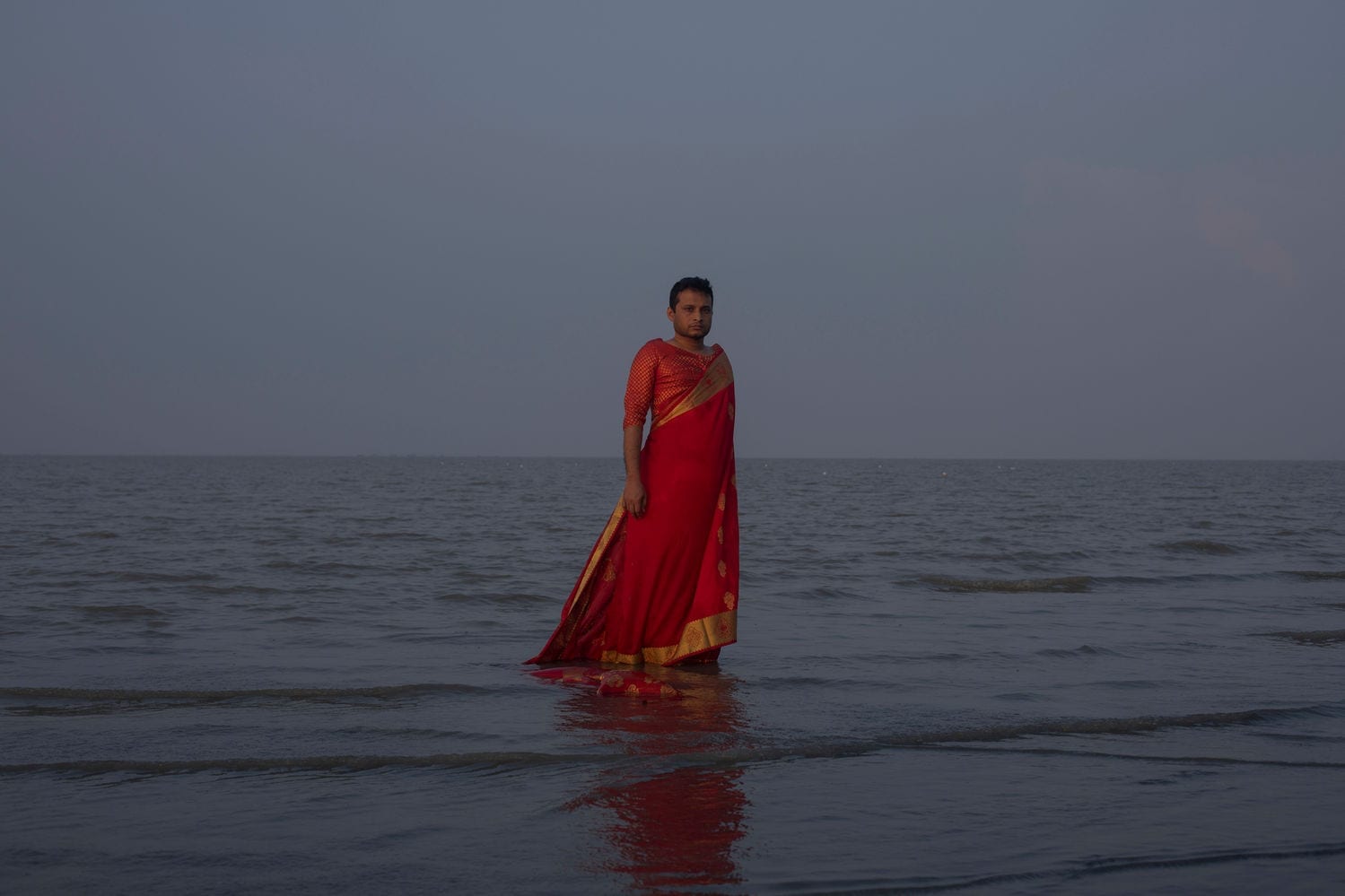
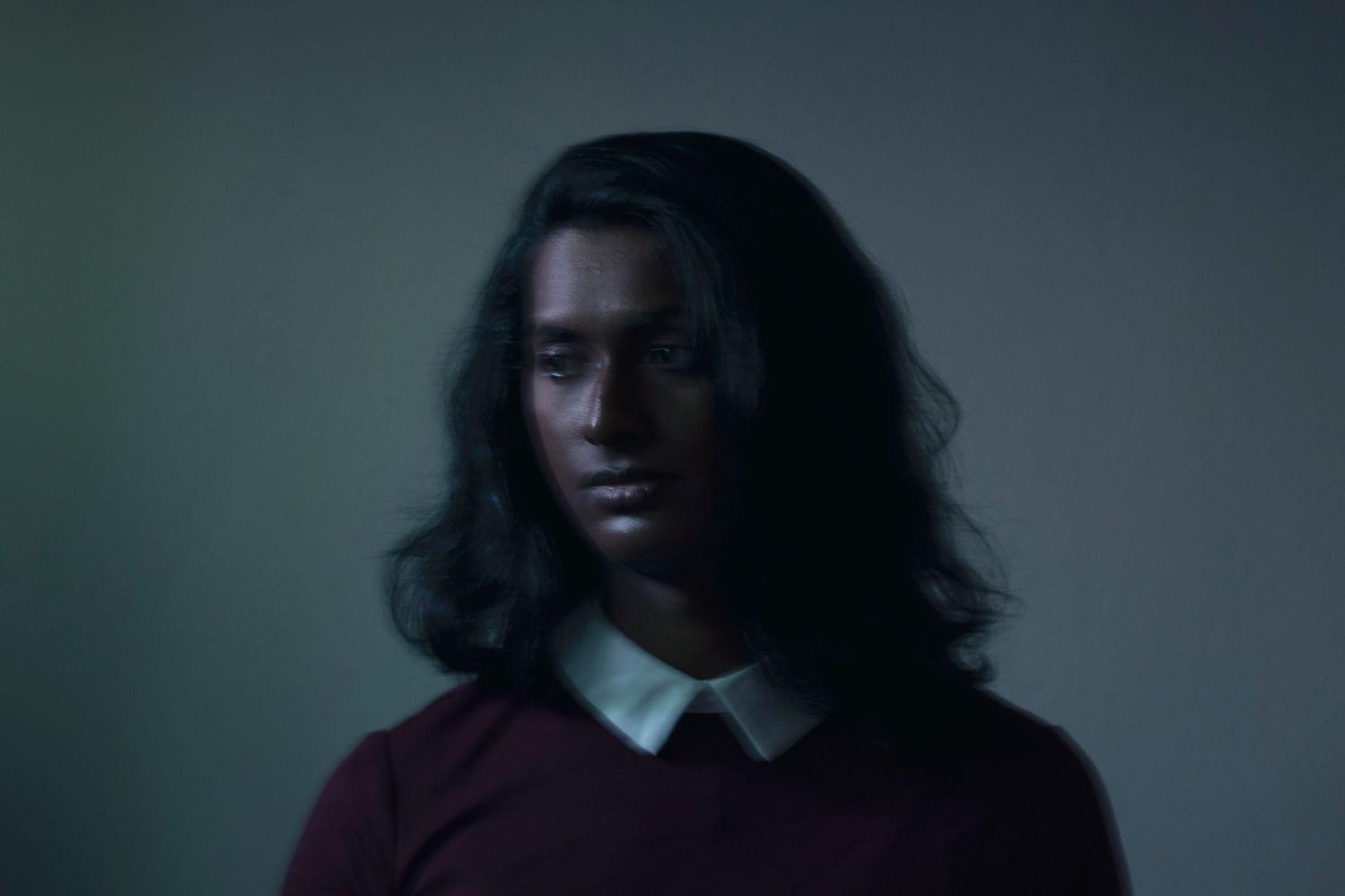
Religion and culture
The series Somewhere Else Than Here is an indictment of the pressure that traditional cultural and conservative religious groups in Bangladesh can put on LGBTQIA+ people.
This work imagines the passage of transitioning of a community of individuals who explore their love, hope and fantasy; fanatical angst, homophobic isolation and their struggle to be perceived as who they are: human.
Before colonisation, the region that is now Bangladesh held more fluid and layered understandings of gender. Communities like the hijras — often recognised as a third gender — existed openly and were part of cultural, spiritual, and even royal life. What is now often seen as “traditional” gender roles and moral codes were in many ways shaped by colonial laws and imported values. Somewhere Else Than Here looks beyond these inherited norms, drawing from a deeper, precolonial history of gender diversity that has long been part of this land’s story.
For younger people, respect2love.nl is the multicultural youth community of the COC.
* Source: COC – Religion & Culture
ABOUT THE SERIES
Born into a strange universe where caged birds can sing but cannot fly, where our love is unloved, yet to die. Is everything untrue or are we?
In my state of Bangladesh, the LGBTQ community is suppressed. In our state of Bangladesh, the people believe in the written word blindly. Words that were written more than a thousand and five hundred years ago in a foreign land. Words that cannot be changed. In their state of Bangladesh, the LGBTQ community is not allowed to love who they want. Their love is illegal. They get hacked to death for expressing their love. Their love is a sin to be cleansed.
At a certain phase of existence, these individuals start to unfold their inner psyches. They began to apprehend their substantive identities. They diverge from the notion of mainstream society and the fanatical belief they were brought up with. This societal and religious perimeter censured their rights and equality which has shaped a circumstance for most of them to transit into new forms of belief where they will be accepted in their own terms, with freedom of expression. Whereas some stop believing and live on.
This work visualizes the passage of transitioning of a community of individuals who explore their love, hope and fantasy; fanatical angst, homophobic isolation and their struggle to be perceived as who they are: human.
